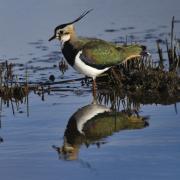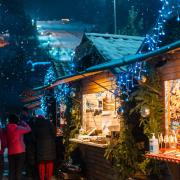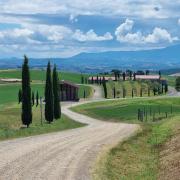Home to 75 per cent of the South Downs National Park and 70 per cent of the High Weald Area of Outstanding Natural Beauty, Sussex has more than its fair share of wild and unspoilt countryside to enjoy.
We all know how good engaging in outdoor physical activities is for our health – a survey by the University of Exeter Medical School found that people who spent at least two hours a week in green spaces were significantly more likely to report good health and higher psychological wellbeing compared to those who didn’t visit nature at all.
Similar research by Natural England in their People and Nature Survey, 2021, found that 85 per cent of adults found being in the countryside made them very happy and 62 per cent said it helped them feel calm and relaxed.
From high-adrenaline adventures to peaceful connections with nature, check out some of these wild and wonderful things to do in the Sussex countryside.
Hike the hills
There’s an abundance of hiking and walking trails in Sussex but the 100-mile long South Downs Way, which runs the breadth of Sussex from Eastbourne in the east to West Harting in the west, where it continues into Hampshire, is the holy grail. Considered one of the UK’s most challenging National Trails, the Way offers 13,620 ft of elevations and outstanding views of the South Downs. Usually taking seasoned hikers between six and eight days to complete (based on walking 12 hours per day), the walk can also be split into sections so you can do a portion in a day or weekend – visit southdownsway.org to see some of the hundreds of different routes available.

Get on your bike
The South Downs National Park offers a huge variety of trails suitable for all levels of cyclist, from gentle family rides that run along towpaths and disused railway lines to more challenging routes with steep elevations and rugged terrain for experienced cyclists. The Centurion Way in West Sussex is a gently 5.5-mile (9km) path that runs between Chichester, Lavant and West Dean using the dismantled Chichester to Midhurst Railway and crosses the course of an old Roman road. In East Sussex, the nine-mile (14km) Falmer, Stanmer and Ditchling route is slightly more demanding with the option to cycle up Ditchling Beacon.
Mountain bikers looking for a bit of an adrenaline rush should head to the dense Friston Forest, in East Sussex, and check out the fast, undulating Jeremy Cole trail. There is also a relatively flat family friendly route.
Climb a crag
Located on the border of East Sussex and Kent, Harrison's Rocks is an extensive sandstone crag offering a whopping 588 routes ranging in style and grade. Extreme Adventures runs guided sessions, tuition and climbing parties for adults and children here. Just 10 minutes’ drive away, a mile south of Eridge Station is Bowles Rocks, which is run by The Bowls Rocks Trust charity, which supports children and young people to achieve their potential through outdoor education, so a small fee is charged to climb here.
In West Sussex, Stone Farm Rocks sits just south of East Grinstead on the hillside overlooking the Weir Wood Reservoir. Owned by the British Mountaineering Council this Site of Special Scientific Interest has sandstone crags ranging between six and eight metres so is suitable for less experienced climbers.

Take the reins
View magical landscape of Ashdown Forest, the inspiration for AA Milne’s Adventures of Winnie-the-Pooh and part of the High Weald Area of Outstanding Natural Beauty from a different level on horseback. The 6,500 acres of unspoilt heathland crossed with bridle paths offers the opportunity for hours of uninterrupted off-road horse-riding.
Situated in the heart of the forest, Ashdown Forest Riding Centre has been providing treks and lessons for almost 30 years and has horses and ponies suitable for all levels of riders. Prices start at £40 per hour to join a guided hack with tuition from £40 for 30 minutes.

Camp in the wild
Did you know there are a host of secret campsites deep in the Sussex countryside, where you can connect with nature in your own secluded wild camping spot?
Spend the night in the most extraordinary corners of private land – from working farms, to land holdings on the banks of lakes, streams, wildflower meadows or in dense woodlands.
With secret camping spaces in the Burgess Hill and Steyning areas, CampWild is a membership community where you pay an annual fee of £20 and are then able to book the spaces exclusively for, on average, £20 per night.
If you’d rather not have to pitch up your own tent for the night, then Swallowtail Hill, near Beckley has a collection of glamping options, where you can hideaway in the wilderness in a little more comfort. Choose from the Roundhouse in the woods, the Meadow Keeper’s Cottage – set in the middle of two wild meadows – and more.
![]() (Image: David Plummer)Join a rewilding safari
(Image: David Plummer)Join a rewilding safari
When you feel the need to get closer to nature, there’s nowhere quite like Knepp Estate near Horsham, one of Europe’s largest rewilding habitats – and the subject of the recent film, Wilding.
You can venture out into the 3,500-acre rewilding project – home to free-roaming wild Exmoor ponies, longhorn cattle, Tamworth pigs and red and fallow deer – in the company of one of Knepp Estate’s expert ecologists who will identify the different birds’ songs and share insights into the ecology of your surroundings. Depending on the time of year, you might see the rare purple emperor butterfly, hear the intoxicating song of the nightingale or the cooing of turtle doves. The three hour Walk on the Wild Side tour costs £60 per person and runs several times a week until the beginning of October.

Go bird and insect spotting
In the depths of the Arun Valley, in West Sussex, you'll find RSPB Pulborough Brooks a family-friendly nature reserve where you can spot a whole host of wonderful wildlife throughout the year. From warblers and Nightingales in spring to dragons and damsels in summer (the reserve is one top UK sites for dragonflies) and wigeons in winter. Wildlife watching isn’t restricted to daytime either – in the summer you can join night-time safaris and see bats zoom above your head and glow-worms twinkle beneath your feet. Further down the River Arun, at the Arundel Wildfowl and Wetlands Centre you can observe a variety of bird species in their natural habitats from the water on a boat safari.
Forage in the forest
A healthy and sustainable way for people to get closer to nature, the trend for gathering food in the wild shows no sign of waning. The Sussex countryside offers an abundance of opportunity to forage for berries, nuts, herbs and more, however if it’s your first time, it’s a good idea to seek some guidance. Professional chef Iona Fraser runs foraging and identification courses around Forest Row, Haywards Heath and Lewes, while Fern Freud does workshops in Findon. Check out for local National Trust websites and Wakehurst Royal Botanical Gardens too as they often host foraging workshops as part of their events programmes.

Explore wild waters
Some say there is nothing like swimming in the sea but a dip in a natural river pool can be just as refreshing. Barcombe Mills, on the River Ouse, is a popular spot for wild swimming thanks to its 5ft-deep, current-free, clear waters.
First timers and younger swimmers should head to Sandy Bay, on the River Rother by Cowdray Castle in Midhurst, where the waters are relatively shallow, have little current and there is a gentle incline down the riverbank.
To take a dip somewhere a little more remote, then Waller’s Haven in Hailsham is a completely secluded spot but is better suited to experienced wild swimmers – it’s slow flowing but can be around 15ft deep in places.
If river swimming feels too scary for you then there are plenty of wild ponds and lakes hidden in the Sussex countryside, where you can head for a dip – at The Secret Vineyard in Herstmonceux you can book on to wellness and wild swim days, while South Lodge in Horsham offers guided wild swimming sessions to guests booking into its new luxury lodges, called The Reeds, which are set around a lake within the hotel grounds.
Go Geocaching
Never heard of Geocaching? Essentially, it’s a tech-based outdoor treasure hunt, which involves individuals and organisations setting up caches (hidden treasure, usually in the form of a low-cost trinket or coin in an outdoor setting) and then providing online clues so GPS users can find them. The South Downs National Park created the first GeoTour in England in 2015 – it has 30 hidden Geocaches and is a fun way to explore the national park.

Stretch outdoors
Yoga classes held in serene outdoor settings are a wonderful way to connect with nature while practicing mindfulness. Hove-based AdventureYogi organises yoga retreats across the UK and abroad, as well as in Sussex, while The Yoga Garden is permanently based in a wildflower meadow within The Knepp Estate and offers yoga classes, workshops and treatments. There’s also a Nordic wood fired sauna, in a converted horse box.
Many of Sussex’s vineyards, such as Tinwood near Goodwood and Ridgeview in Ditchling Common, host yoga among the vines and Borde Hill, in Haywards Heath, has evening yoga and meditation sessions on the South Lawn which can be combined with a relaxing stroll round the garden. The next session is on September 14 and costs £20.




























